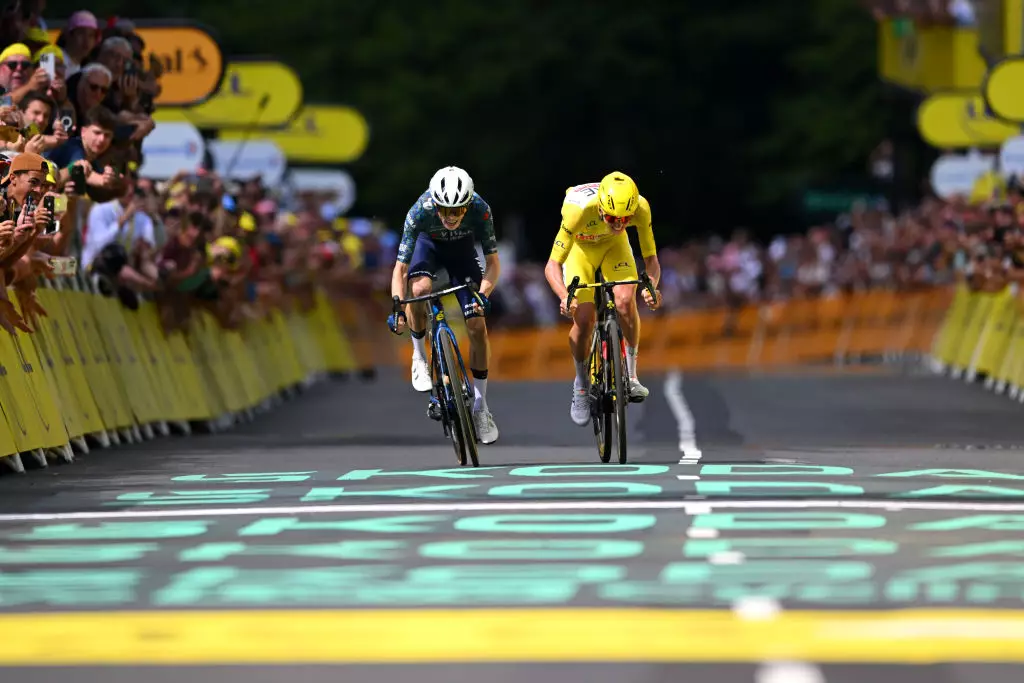The announcement that Warner Bros. Discovery (WBD) secured exclusive UK rights to the Tour de France has sent waves through the cycling community and television landscape. This significant development leaves fans wondering about the future of free-to-air coverage and the potential impacts on the sport’s visibility and accessibility.
Warner Bros. Discovery’s successful bid for UK rights marks a pivotal moment in the broadcasting of the Tour de France. As the only bidder, WBD now holds the reins for how cycling’s most prestigious event will be portrayed in the UK starting from 2026. The European Broadcasting Union facilitated this deal with ASO, the event’s rights holder. Yet, the question remains—as no free-to-air broadcasters participated in the bidding, what does this mean for average viewers who may no longer have access to the Tour without pay-TV subscriptions?
The current rights owner, ITV, has held the broadcasting privileges since the early 2000s. Though ITV’s coverage has been well-received, with a strong commentary team and a loyal fanbase, it seems that cycling may soon slip into a pay-to-view reality. This transition could hinder the sport’s growth and alienate long-time viewers who have become accustomed to free access, particularly amidst the increasing popularity of cycling in the UK, fueled by Olympic successes and homegrown champions.
The Impact on Cycling’s Popularity
Cycling has grown immensely in the UK over recent years, largely due to a succession of successes at international competitions. The achievements of British cyclists—Wiggins, Froome, Thomas—coupled with significant funding for teams like Ineos have catalyzed mainstream interest. The loss of free-to-air coverage could stifle this momentum. While the likes of Eurosport might provide comprehensive insights and year-round coverage, the fact remains that most casual fans prefer the accessibility of free programming.
Moreover, cycling’s expansion into a beloved sport faces obstacles without free-to-view platforms. Access to events such as the Tour de France, traditionally known for generating communal viewing experiences, transforms when switched behind a paywall. The community aspects of cycling viewership are undeniably tied to television accessibility, which could take a hit if WBD fails to integrate free highlight packages or other accessible coverage options.
WBD has hinted at the possibility of offering free content, but details remain scarce. As of now, this is merely speculation, and cycling enthusiasts in the UK are right to be concerned. Although Eurosport provides extensive cycling coverage, it typically resides within the subscription model, with highlights presented on its free channel, Quest. It’s crucial for WBD to think innovatively about how to keep cycling accessible while satisfying their business directives.
The decision to not pursue cycling rights on the part of ITV suggests a strategic pivot towards more lucrative sports broadcasting, namely soccer. This change raises questions about ITV’s commitment to promoting diverse sporting events. Cycling’s future as mainstream entertainment depends on how networks like WBD navigate these challenges. Maintaining a balance between profits and public access could foster an environment where cycling continues to thrive.
The reactions to the news of Warner Bros. Discovery’s acquisition are rather polarized. Dedicated cycling fans lament the uncertain future of free access while industry professionals speculate about potential opportunities for progress. However, it’s clear that the reception of this deal will hinge on how well WBD manages its new responsibilities.
The upcoming 2026 season promises to be an important transitional period. With ITV retaining broadcasting rights through the 2025 edition—affording fans at least one more summer of enjoying the race free of charge—this creates a window of opportunity for WBD to consider its approach to establishing free-to-air content in the UK. Anticipation is building not only for the races ahead but also for the evolving landscape of cycling media.
The acquisition of Tour de France rights by WBD represents a significant shift in the cycling broadcasting realm in the UK. With ongoing discussions about access and viewership, stakeholders in both the sport and media must navigate the delicate balance between profitability and public accessibility. As the landscape further evolves, the focus will undoubtedly remain on how these changes will shape the future of cycling in the UK.
